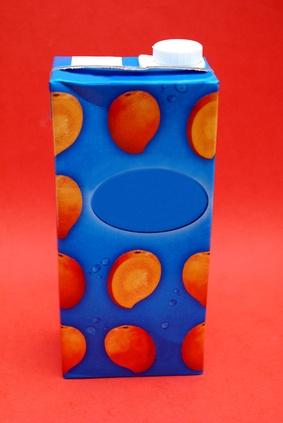In 2007, a single study conducted in Britain and published in "The Lancet," on the effect of preservatives in foods on children's behavior made big headlines. However, a closer look at the topic reveals that the understanding of preservatives and behavior is not clear-cut. And avoiding these preservatives is challenging at best.
In 2007, a single study conducted in Britain and published in "The Lancet," on the effect of preservatives in foods on children's behavior made big headlines. However, a closer look at the topic reveals that the understanding of preservatives and behavior is not clear-cut. And avoiding these preservatives is challenging at best.
The Preservative
The focus and concern is with preservative sodium benzoate, especially when mixed with artificial coloring. Sodium benzoate is commonly found in processed foods and sugary drinks, especially sodas. It is also found in antifreeze, toothpaste and medications. Sodium benzoate's wide use is due to its ability to prevent the growth of various microbes at minimal concentrations. Adding sodium benzoate keeps foods, medications and other products safe for people to consume or use.
Behavior Affected
In the 2007 British study, researchers gave children of different age groups drinks with the preservative sodium benzoate. The diet of the children otherwise did not contain sodium benzoate. Results showed that the children become significantly more hyperactive after drinking the preservative-laced drinks. It is not thought that this preservative causes disorders, such as ADHD, as the effects are only temporary. However, it does increase the hyperactive behaviors of some children, including those with ADHD.
Metabolism in the Body
According to the International Programme on Chemical Safety, the preservative sodium benzoate metabolizes quickly in the body. This means that the preservative is absorbed and passed out of the body (through urine) in a relatively short amount of time. This fast metabolism prevents the body from retraining the preservative, and there is little concern that it builds up or otherwise accumulates in the human body. This may explain why the hyperactive behaviors seen in children are only temporary and not long lasting.
Controversy
The association between preservatives and children's behavior is not agreed upon by all scientific experts. WebMD reports that experts are divided on this issue because other studies do not show a link between preservatives and children's behavior. It is clear that more research is needed.
Advice to Parents
With the disagreement of experts, parents may be wondering what to do, especially those parenting children with ADHD or other behavior disorders. The consensus is to simply know your child and how artificial additives to foods may affect your child. It may be that experts and studies have conflicting results because every child reacts differently, or not at all, to preservatives. Eliminating the preservative sodium benzoate from your child's diet will not harm him, but it also will not cure him of any disorder. However, avoiding sodium benzoate in food and drinks may help prevent some hyperactive behaviors.
Photo Credit
- Pack made of cardboard for mango juice drink image by L. Shat from Fotolia.com





